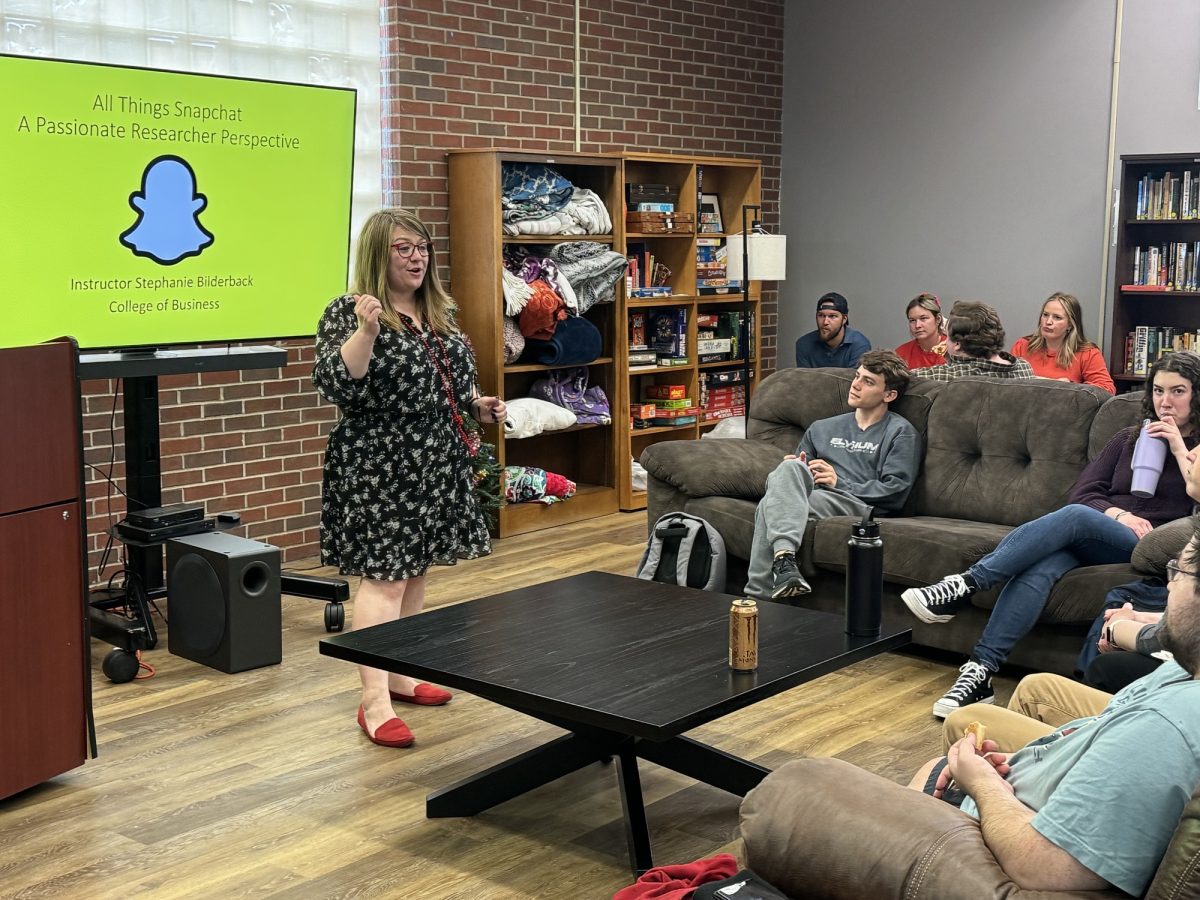» By CHRIS COPPEDGE- [email protected]
For Elizabeth Kurtz, APSU’s Americorps Vista representative, the issue of service-learning on the APSU campus is a deeply important one.
“This conference is a huge step in terms of exposing our faculty to the service-learning already in place at other Tennessee Board of Regents and Tennessee schools,” Kurtz said.
APSU held the Service-Learning Forum Friday, Jan. 20. The Forum’s main goal was to educate and inform the campus faculty about the service-learning program and its benefits.
Speakers and presenters at the forum included Provost Tristan Denley, Tennessee Campus Contact Executive Director Mani Hull, instructors and students from Southwest Tennessee Community College, Sen. Tim Barnes and the facilitators of APSU’s service-learning program Clark Maddux, Alexandra Wills and Kurtz.
According to Maddux, service-learning is a teaching and learning strategy integrating meaningful community service with instruction and reflection to enrich the learning experience, teach civil responsibility and strengthen communities.
APSU’s goal is to have a permanent, centralized service-learning office on campus within the next few years and, with it, a fully realized service-learning program as outlined by the forum.
“This forum will bring service-learning to the forefront of our pedagogy,” Kurtz said, noting it will help coordinate relationships between community partners and classes who might be interested in working with them.
The service-learning program has a certain criteria that must be met for those who wish to participate, according to Maddux.
It requires 13 to 15 hours of mandatory volunteer work during the semester.
This work must benefit the community at large, not principally the needs of an individual or company.
The designation for service-learning participants will be pre-approved by a service-learning committee or the Provost’s designee.
Students must provide at least two different forms of reflection on the work they have done and their experience.
These can come in many forms, including journals, case studies, portfolios, presentations, papers or online discussions.
In order to assist systematic campus tracking, students will also complete a pre-survey and a post-survey regarding their experience in the service-learning program.
The presence of service-learning at APSU is a fairly recent development, according to Wills. It was not until 2009 that the program began to take shape on campus.
“Student Affairs created a position to enhance student experience with the community through service and volunteerism,” said Wills.
Academic Affairs was also involved, creating undocumented service-learning courses, the Provost’s Service Learning Advisory Board and an inventory of existing service-learning classes and activities.
They developed definitions, criteria, a course proposal process and a proposal for institutionalizing service-learning at APSU as well.
Student Affairs has been involved in helping engage the community, including hosting service-learning themed introductions to college courses, acquiring paperwork and liability forms and tracking service hours.
The work has not always been easy.
“We’ve had to introduce an entire culture of service-learning, educate our faculty about it and get community partners on-board,” Wills said. TAS






